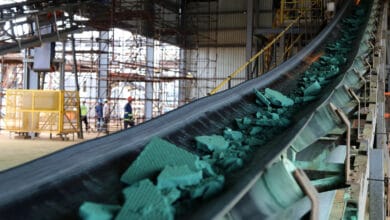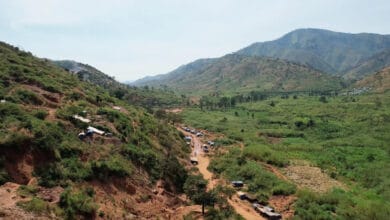Chinese group CMOC and Swiss miner Glencore, which together account for about 70% of cobalt exports from the Democratic Republic of Congo (DRC), produced 78,773 tons in the first half of 2025, an increase of 15% compared with the same period in 2024. Despite the export embargo in place since February, Glencore has raised its annual production forecast.
At its Mutanda and KCC mines, Glencore reported 17,700 tons in the first half, up from 14,400 tons a year earlier, a 23% increase. CMOC produced 61,073 tons over the same period, a 13% rise. The Chinese company is targeting between 100,000 and 120,000 tons this year, after producing 114,165 tons in 2024. Glencore now expects to produce at least 42,000 tons in 2025, above its initial forecast of 40,000 tons.
The production continues because cobalt is being stored inside the country until the embargo is lifted, which is expected no earlier than September. With prices up more than 50% since February and stocks outside the DRC running low, the stored volumes could be sold quickly once exports resume, possibly at higher prices.
Another factor is structural: 99% of global cobalt output is a byproduct of copper or nickel, according to the Cobalt Institute. Most mines in the DRC, including Tenke Fungurume and Kisanfu operated by CMOC, are copper-cobalt sites. As long as copper extraction continues – with prices ranging between US$8,000 and US$10,000 per ton this year – cobalt is produced as well. This trend also explains why Indonesia has become the world’s second-largest cobalt producer in recent years, as its nickel industry expanded rapidly.
According to the Cobalt Institute, the growth of nickel supply and its byproduct cobalt allowed Indonesia to move from just 2% of global cobalt production in 2021 to 12% in 2024. During that period, cobalt output increased twelvefold.
In the short term, the global cobalt market is waiting for the embargo in the DRC to be lifted. But the dependence on copper and nickel means producers cannot fully control how much cobalt is extracted. To avoid another collapse in prices, Kinshasa is considering introducing export quotas.









